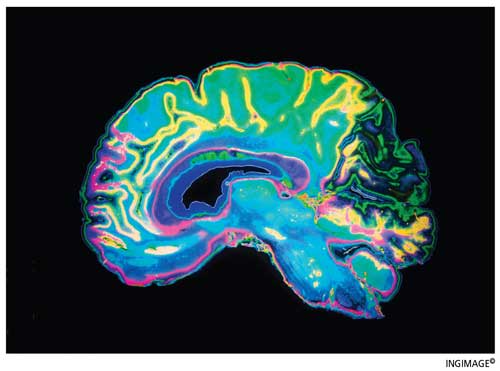EXECUTIVE HEALTH
AGEING AND THE BRAIN
BY Dr. Sanjiva Wijesinha

In an article on the prevalence of dementia in Sri Lanka published in BioMedCentral (BMC) Geriatrics in 2022, Dr. Surangi Jayakody and Prof. Carukshi Arambepola warn that an epidemic of dementia in our country is a certainty.
The only study attempting to measure the prevalence of dementia in Sri Lanka was undertaken by H. A. de Silva et al in 2003. Four percent of the study population showed a higher prevalence for dementia than in other South Asian populations.
With the proportion of older people in Sri Lanka being greater than the median in the Southeast Asian region and rapidly increasing, the warning of a dementia epidemic must be taken seriously.
All of us become a little forgetful as we grow older – some more so than others. So what can we do to prevent this mild cognitive impairment (MCI) progressing to overt forms of dementia such as Alzheimer’s disease, which happens to about 40 percent of those who begin experiencing symptoms of MCI?
We still don’t know as much about dementia as we’d like to. Research is being conducted on the risk factors that are responsible, what can be done to minimise the onset of dementia, and which medications can be used to slow down and even arrest it.
However, what we do know is that lifestyle plays a significant role in the onset of dementia. Regular exercise and a healthy diet are vital in prevention, as is avoiding drugs and medicines that can damage the brain. Poor sleep quality and depression can also contribute to the development of dementia.
Physical exercise works by increasing blood flow to the brain. Many studies have shown that regular exercise reduces the age-related loss of brain tissue and also diminishes cognitive decline.
Diet is also important. Food that contributes to the development of plaque in the arteries and amyloid in the brain must be avoided.
One should minimise the intake of food rich in saturated and trans fats (such as fried foods, cakes and biscuits), which lead to high levels of cholesterol in the blood. Fish, fruits and vegetables such as beans, other legumes and berries that are rich in antioxidants are also beneficial.
As much as physical exercise is important to keep blood flowing through the brain so too is mental exercise that keeps the brain cells working.
After you retire from your regular job, activities such as reading, learning a new language or an instrument, playing board games, and doing crossword puzzles and sudoku, help stave off memory loss.
A useful ‘brain check’ can be done using questionnaires such as the Mini-Mental State Examination (MMSE), which your doctor can administer to you, or the Informant Questionnaire on Cognitive Decline in the Elderly (IQCODE) that can be answered by your family.
Ideally, these checks should be carried out when you reach the age of 65 and repeated regularly thereafter. In practical terms however, what can be done is that if someone’s showing signs of memory loss that are concerning, the person should consult a doctor and have an MMSE or IQCODE done in the first instance.
If cognitive impairment is evident, this can be followed up with investigations such as a brain CT scan and blood tests. The results of the MMSE or IQCODE can be used as a baseline to assess any measurable decline in memory when the test is repeated after a year or so.




